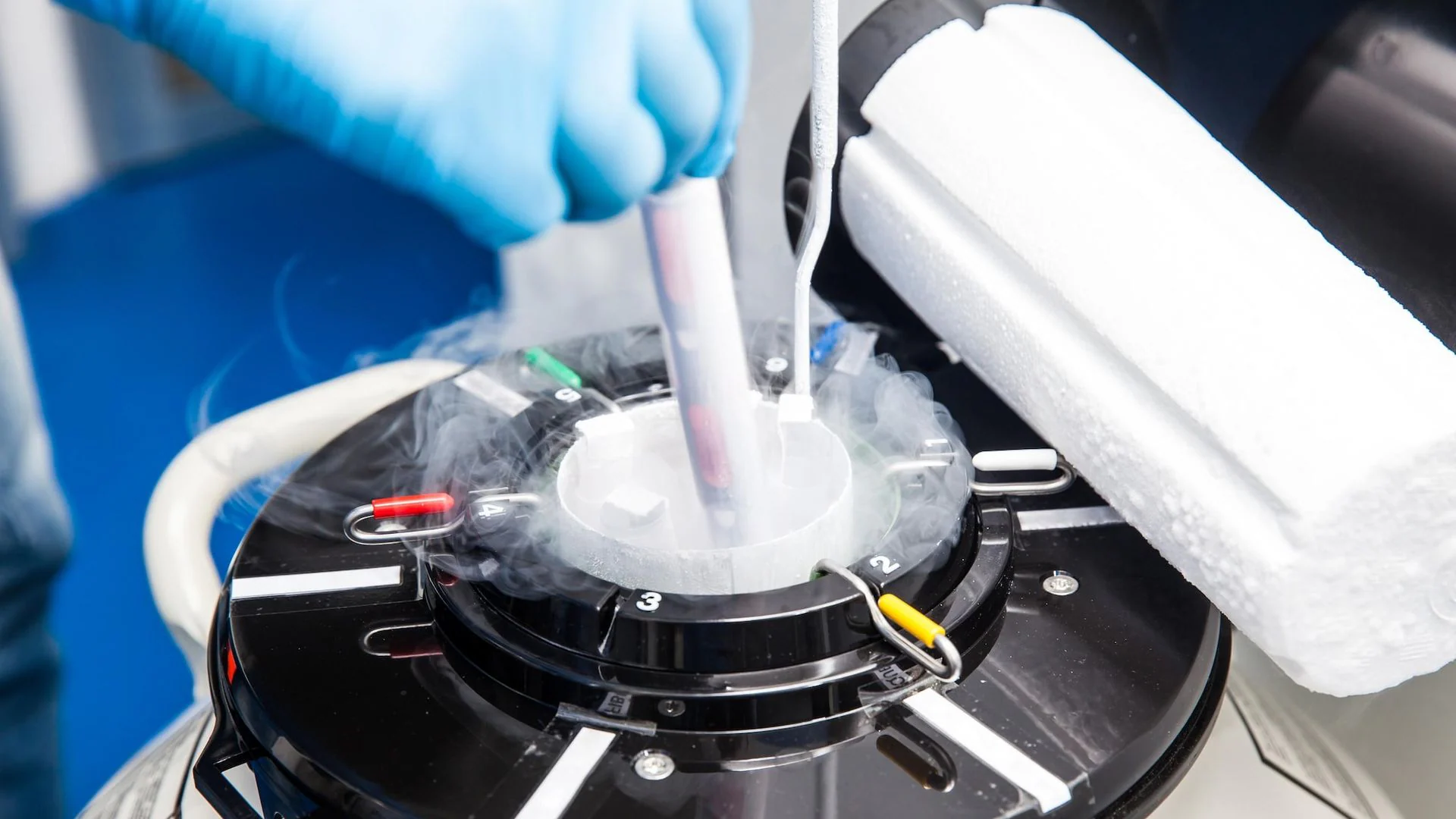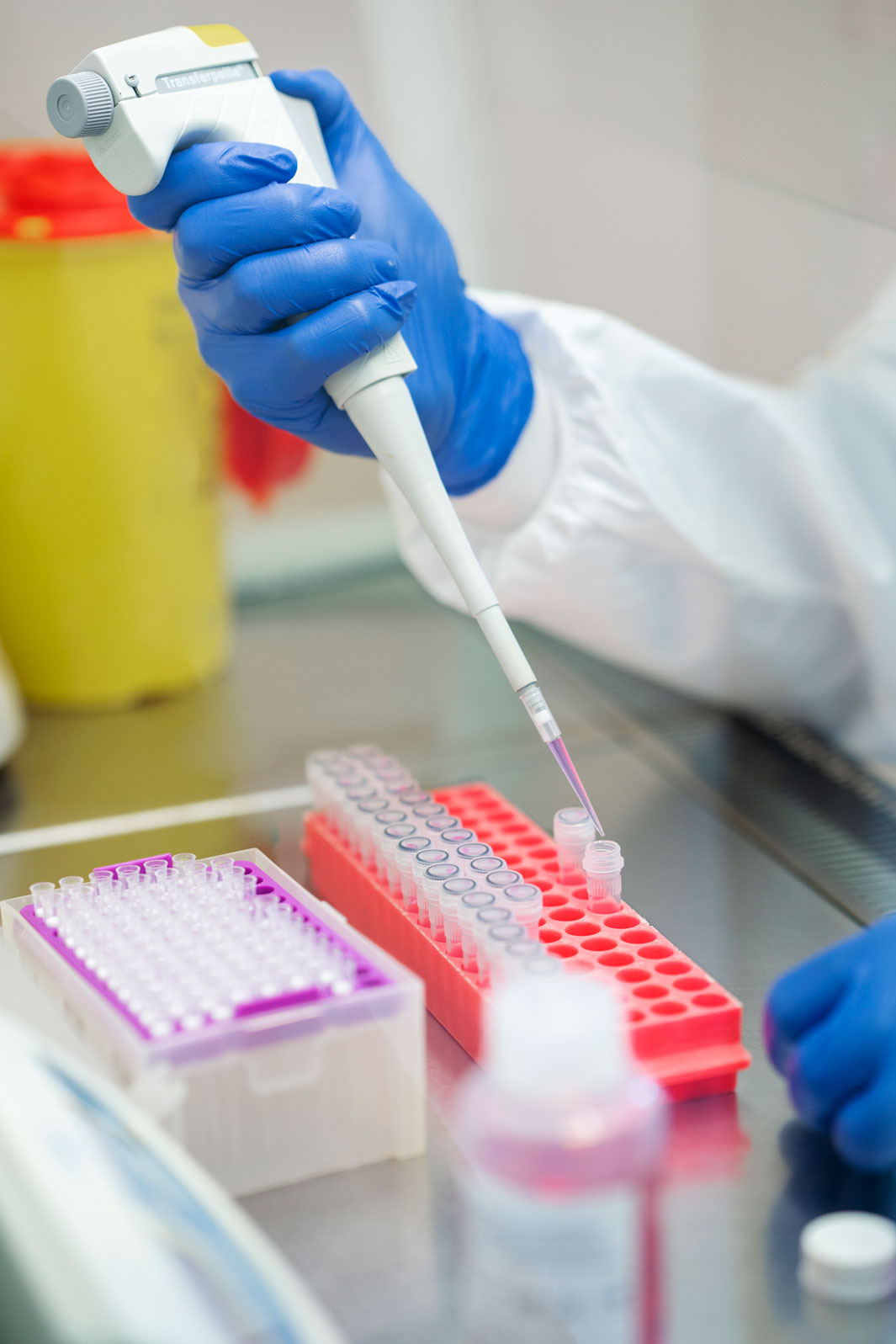BAJA FERTILITY SERVICIES
Cryopreservation (Vitrification)
ABOUT US
Cryopreservation (Vitrification)
At Baja Fertility Services, we offer cryopreservation services to preserve cells and tissues at -196°C using liquid nitrogen. This process is essential in modern assisted reproduction treatments, ensuring high survival rates and successful clinical outcomes.

What is Cryopreservation?
Cryopreservation, also known as vitrification, is a technique that allows the freezing and storage of sperm, eggs, and embryos for future use. This advanced technology ensures that cells and tissues maintain their viability and functionality upon thawing.
Applications of Cryopreservation
Cryopreservation is recommended in the following cases:
EGG VERIFICATION
• Fertility Preservation: For women who wish to delay motherhood for personal or professional reasons.
• Oncology Patients: Women undergoing chemotherapy or radiation therapy that may impact fertility.
• Premature Ovarian Failure: Women at high risk of early menopause or with a family history of ovarian insufficiency.
Embryo Vitrification
• Planned IVF: Couples who wish to preserve their fertility after a successful IVF cycle, allowing for future embryo transfers without the need for repeated ovarian stimulation.
• Preimplantation Genetic Testing (PGT): Genetically selected embryos awaiting future transfer.
Sperm Cryopreservation
• Low Sperm Count: Men with a very low sperm count can store multiple samples to ensure sperm availability on the day of egg retrieval.
• Oncology Patients: Men undergoing chemotherapy or radiation therapy can preserve their fertility by freezing semen samples before treatment.
• Obstructive Azoospermia (Testicular Biopsy): Men with blocked vas deferens, diagnosed by a urologist/andrologist, can obtain sperm through a testicular biopsy for later vitrification.

Cryopreservation
Key Benefits
At Baja Fertility Services, we are committed to offering the best fertility preservation solutions for our patients, using cutting-edge technology and a personalized approach.
• Advanced Technology:
We use the most modern techniques to ensure maximum viability and functionality of frozen eggs, sperm, and embryos.
• High Survival Rate:
Our methods ensure that preserved cells and tissues maintain their quality after thawing.
• Flexibility and Control:
Cryopreservation provides the ability to plan fertility based on each patient’s personal and medical circumstances.
• Oncofertility Preservation:
Our techniques ensure that preserved reproductive cells and tissues retain their integrity after thawing, supporting fertility options for cancer patients.
CONTACT
PLAN YOUR VISIT
Book Your Appointment
The first step is to contact us and schedule your consultation.
Prepare Your Medical Information
Gather your medical history and a list of questions to discuss with your doctor.
Attend Your Initial Consultation
Make sure to arrive on time with all the necessary documentation.
CONTACT
BOOK YOUR APPOINTMENT
We are here to support you on your journey to parenthood. Booking an appointment with us is the first step toward receiving the care and support you need.
GET IN TOUCH
If you have any questions or need more information before scheduling your appointment, feel free to contact us. We are here to help.
LOCAL PHONE
664 635-8427
PHONE FROM THE U.S:
001 619 4003830
+52 664 166 9569
info@bajafertility.com
ADDRESS
Torre Norte 2: Fray Servando Teresa de Mier 1351, local 601, Zona Urbana Río Tijuana, Tijuana, B.C.
FAQ
Frequently Asked Questions
What are the causes of infertility?
They can be social or medical in nature. Among the social causes are the delay in seeking to have children and the stress experienced by both men and women in daily life. Among general medical causes, we find extreme obesity, anorexia nervosa, serious illnesses, thyroid disorders, substance and medication abuse, alcohol and tobacco use, and chemotherapy. About 20% of cases remain unexplained.
Medically, the most common conditions affecting women are issues with the Fallopian tubes, ovulation disorders, uterine cavity abnormalities, and endometriosis, among others.
In men, the issues typically involve sperm count, motility, and abnormal sperm morphology.
Is infertility only present in women?
Although many people associate infertility with women, it actually occurs with equal frequency in both men and women.
Do I need to bring my laboratory tests? What are they used for?
It is important. If you have already been in consultation or treatment for infertility, you should bring any tests you have previously undergone, such as hormonal tests, ultrasounds, X-rays (such as hysterosalpingography), semen analyses, among others.
Before starting an assisted reproduction treatment cycle, you will be required to have HIV testing, hepatitis B blood tests, hepatitis C blood tests, and VDRL testing for syphilis.
It is important to bring your test results if you have them; otherwise, the clinic will schedule them on the appropriate days for their performance.
Medically, the most common conditions affecting women are issues with the Fallopian tubes, ovulation disorders, uterine cavity abnormalities, and endometriosis, among others.
In men, the issues typically involve sperm count, motility, and abnormal sperm morphology.
Antes de comenzar un ciclo del tratamiento de reproducción asistida se le pedirá análisis de VIH, de la hepatitis B; Análisis de sangre para hepatitis C. VDRL para prueba de sífilis.
Es importante llevar sus exámenes si los tiene, en caso de no tenerlos en la clínica se programaran en sus respectivos días ideales para realizarse.
En cuanto a lo medico, las situaciones que más se alteran en la mujer son Trompas de Falopio, Ovulación, Cavidad uterina, endometriosis entre otras.
Y en el varón, el numero de esperma, motilidad, formas anormales. De los mismos espermas.
What will happen at my first fertility consultation?
Bring the following with you if applicable:
Make a list of all your questions so you won’t forget them when you are with your doctor.
A history of your fertility (summary of any previous treatments).
If you have undergone fertility treatment elsewhere, you have the right to request a report from that clinic detailing your treatment history.
Blood test results.
Semen analysis results.
Reports from previous examinations such as X-rays or any surgeries you may have had.
The initial consultation lasts approximately one hour, and your partner should attend with you. You should arrive 15 minutes before your appointment to fill out a form and have your vital signs taken before seeing the doctor.
A complete and comprehensive medical history will be taken from both partners, if applicable. A nurse will be present during any gynecological examination. If necessary, the husband will be asked to provide a semen sample for analysis (he can also request to provide the sample later if he is uncomfortable doing so on the day of the appointment).
In which cases is Artificial Insemination recommended?
It is generally recommended when sperm count or motility is low, after failed induction and intercourse treatments, or after endometriosis treatments.
Is age important when undergoing assisted reproduction treatment?
Assisted reproduction has given us greater opportunities to welcome a new loved one into our homes; however, pregnancy is not 100% guaranteed. Age is a very important factor for success. The recommended age range is between 20 and 35 years old. After this age, ovarian reserve begins to decline significantly, reducing the chances of pregnancy and increasing the risk of genetic abnormalities, such as Down syndrome.

